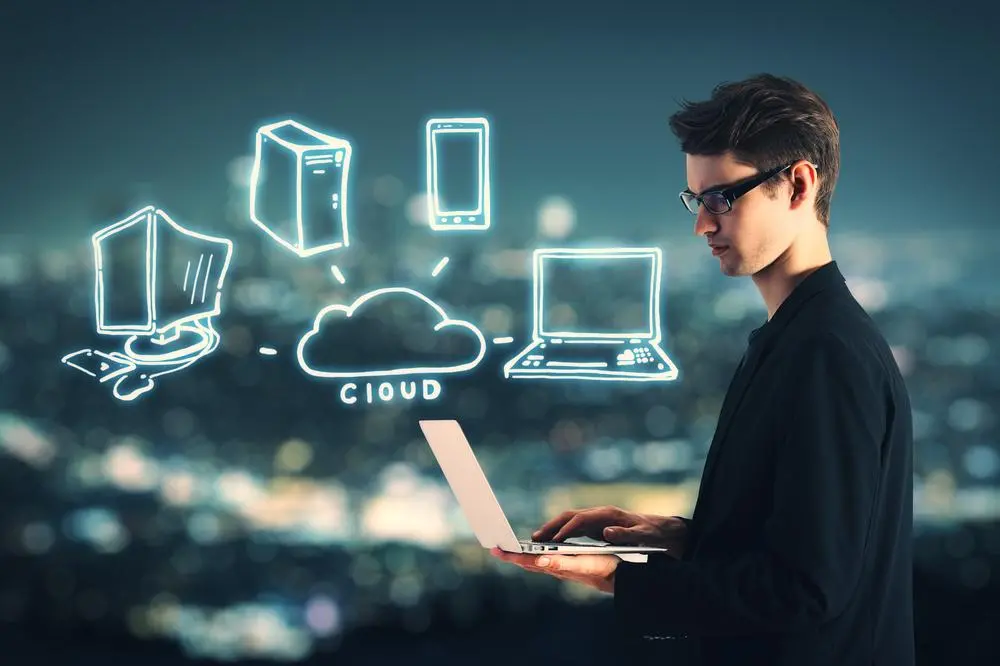PHOTO
Workplace digitisation has led to new communication practices, with employees working remotely and using mobile devices and cloud services to decide and act in the right opportunity.
And it's not just employees who interact with an organisation across several devices but also suppliers, vendors, clients etc.
For finance leaders, ensuring data is easily accessible and safe across the whole business ecosystem whatever the device has become a top priority.
The growth of a multi-device work environment
According to research firm TNS's Connected Life study, the average adult in the UAE owns at least four devices.
The 'mobile-first' way of life is also gaining traction in the professional world, with employees increasingly switching between devices and using several screens to complete their work.
"Members of a new generation are entering the workforce, and bringing with them their smartphones, tablets, and personal laptops. And they expect to be able to use these powerful new devices not just to interact with friends and family during work hours, but to do their work as well," PWC said in its recent "Connectivity, communication, collaboration" report.
"Business is changing too -- working around the clock to meet the needs of the increasingly global economic environment. Teamwork and collaboration are at the heart of how companies operate now," the report noted.
The modern workplace is now a multi-media and collaborative environment where employees access information or interact with their managers, colleagues, vendors, suppliers or clients across many devices or open systems, such as desk monitors, laptops, smartphones, tablets, video-conferencing facilities, document sharing platforms and group messaging systems etc.
Enterprise mobility on the rise
As a result of changing practices, the enterprise mobility market is booming and will reach U.S.$50.7bn in 2020, according to Global Industry Analysts, who identify the Middle East and Africa region among the top three markets in the world with the most potential for growth, along with Asia and Latin America.
"The growing need for companies to enhance operational efficiency, improve productivity and reduce in-house infrastructure costs is benefiting the adoption of enterprise mobility," the research and intelligence firm said.
"Growth in the market is also driven by benefits such as anytime, anywhere access to back-end systems such as ERP, CRM and financial information to remote employees."
However, for all its benefits, the reality of the multi-device phenomenon is that it also brings with it a range of challenges, from an increased risk of cybercrime to confidentiality and legal issues.
Harmonising IT and security policies
"Whilst many employers and employees are becoming more interested in alternative ways of working, such as remote or home-working and hot-desking when in the office, these modernisation policies are only going to work properly when company IT policies and communication policies catch up," said Rebecca Ford, partner in the MENA employment team of Clyde & Co, a global law firm.
"For example, in the event of an internal investigation regarding serious employee misconduct, it is common for employers to look at an employee's email communication for evidence supporting the complaint or defending the employee."
Emails sent or received on a business email address and on a work computer can be said to be business-related, Ford pointed out. However, what happens when the email communication is on a personal phone, or social media apps such as Whatsapp?
"It is therefore vital to ensure that company policies and employment contracts reflect the modern work environment and that consent for monitoring of communications and confirming what form the communications can take is obtained," she said.
Safeguarding the use of employee, client and enterprise data on an increasingly diverse set of devices and platforms is a business priority. Cloud keeps files synchronised automatically, allows easy and secure access anywhere, and can be used alongside existing legacy systems. Furthermore, it allows a form of continuity in how a business interacts with its ecosystem. Thus it should play a vital role in a solid multiple-devices strategy.
© Oracle 2017





















